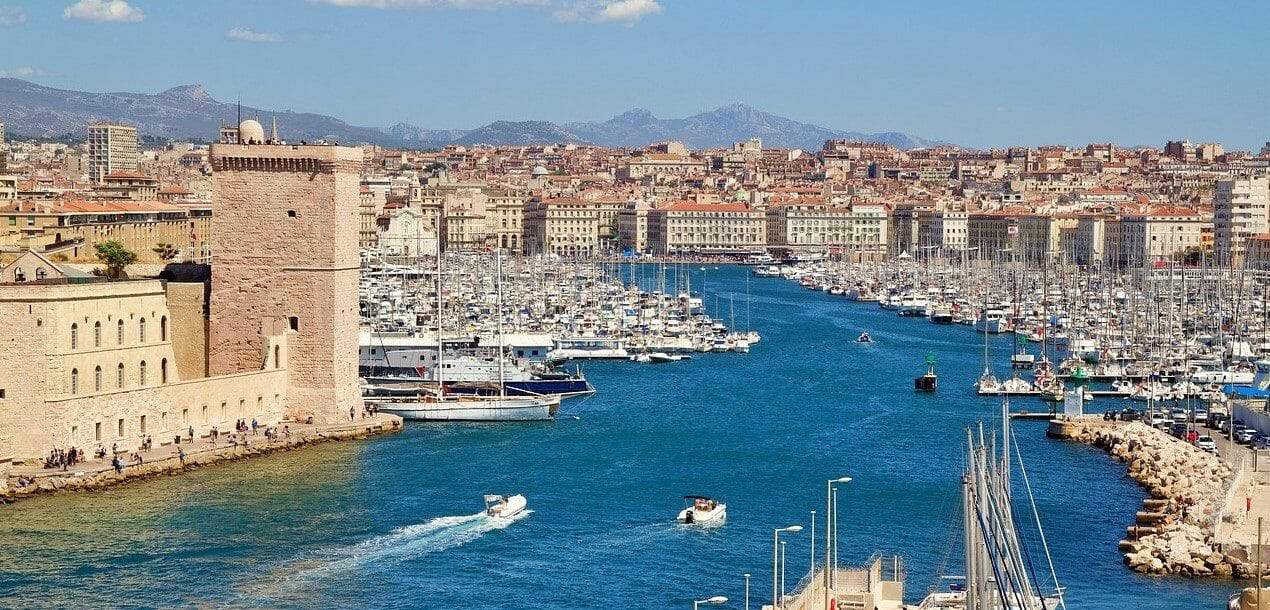│by Meg Ison, Gale Ambassador at the University of Portsmouth│
After a busy exam season, students up and down the country look forward to long summer vacations, hopefully with a trip or two! Unfortunately, due to COVID-19, many of us don’t want to catch a flight this summer. But all is not lost! Gale Primary Sources, an online database of digitised primary sources, allows you to explore your cancelled holiday destination in a virtual way – from the safety of your own home!
Personally, I’d planned to go to Marseille in June, which is a historic city in the South of France well known for its Roman and medieval architecture and ruins. Instead, I had a really fun afternoon exploring Marseille by delving into some rare and quirky primary sources – and you can go there with me in this blog post!
Planning a route
I started my virtual adventure by entering the terms ‘Marseille’ and ‘Vacation’ into the database (using the Advanced Search), and then turned to the Topic Finder tool to plan my trip around Marseille. The resulting visualisation is below:
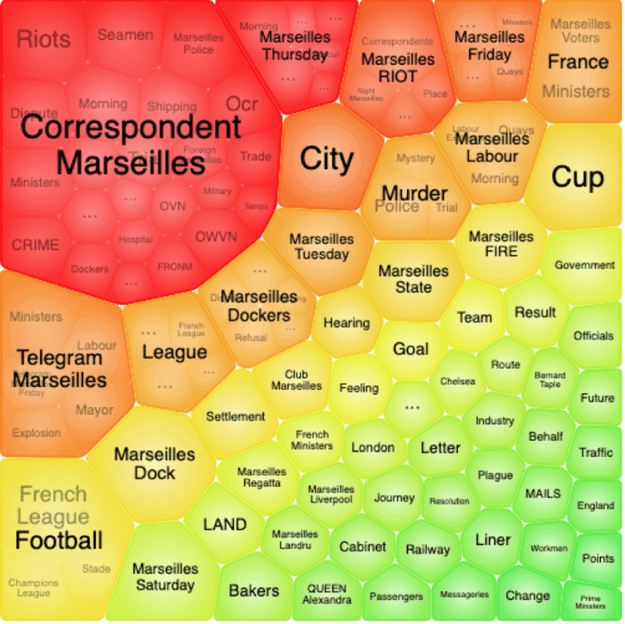
With the predominance of terms such as ‘riots’, ‘police’ and ‘crime’, it appears Marseille is a little more colourful than the terracotta buildings I had been expecting to see! Nevertheless, I am a fan of any history concerning resistance, rebellion and regionalism, so Marseille still sounds a fascinating destination.
Sightseeing
Whilst deciding which theme to explore first, I did what most city-breakers do: I drew up a list of must-see sights! The Old Port had been high up on my list of places to visit this summer so I searched within some of the thematic clusters shown in the diagram above – such as ‘Marseille Dockers’, ‘Journey’, ‘Liner’, ‘Passenger’, and ‘Industry’ – for sources relating to Le Vieux Port.
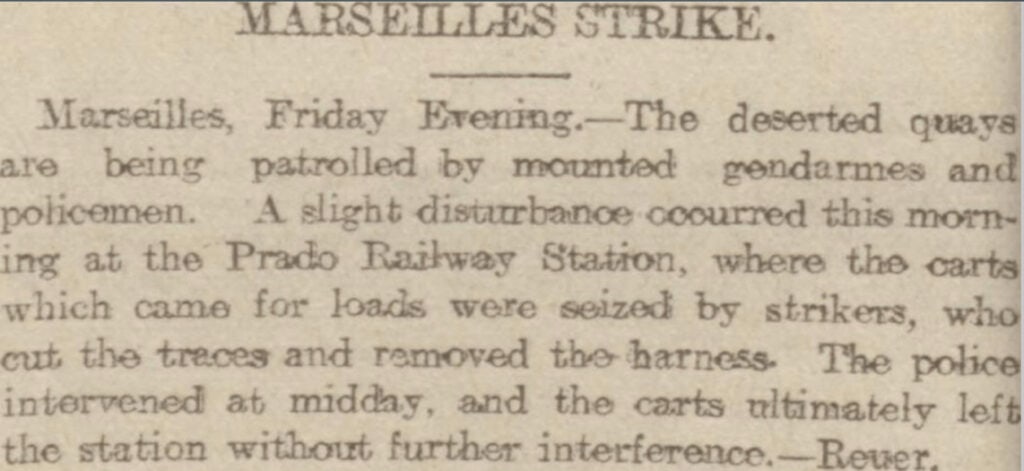
The source above from 1904 about clashes between dockers and railwaymen at The Old Port contextualises why tourist brochures now mark it as an area of interest. Indeed, a wide selection of primary sources show that the Old Port has been the political and economic epicentre of this maritime city throughout history.
This understanding was deepened by other sources I found from the colonial period that framed Marseille as France’s gateway to the Mediterranean; the city’s old port as a bridge connecting the French mainland to North Africa. See the 1921 poster below, for example, advertising steamboat trips from Marseille to Algiers:
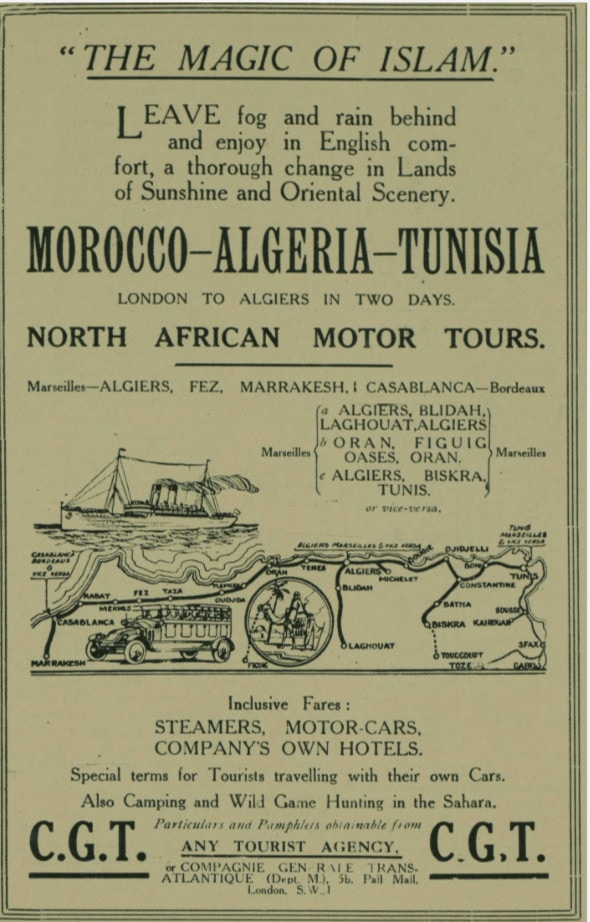
Wanting to probe deeper into the Franco-North African past of Marseille, I went back to the Topic Finder tool to search within the thematic clusters of ‘murder’ and ‘riot’. This provided me with some contemporary newspaper sources that shed light on the complicated legacies of colonialism in this French port city. Focusing particularly on the issue of immigration, many reports narrated the prevalence of racism and racialised violence in this part of France, especially within the socio-economically deprived banlieues. Sources such as the one below from Newsweek which I found in Gale’s Women’s Studies Archive provided me with more information about this sensitive issue.
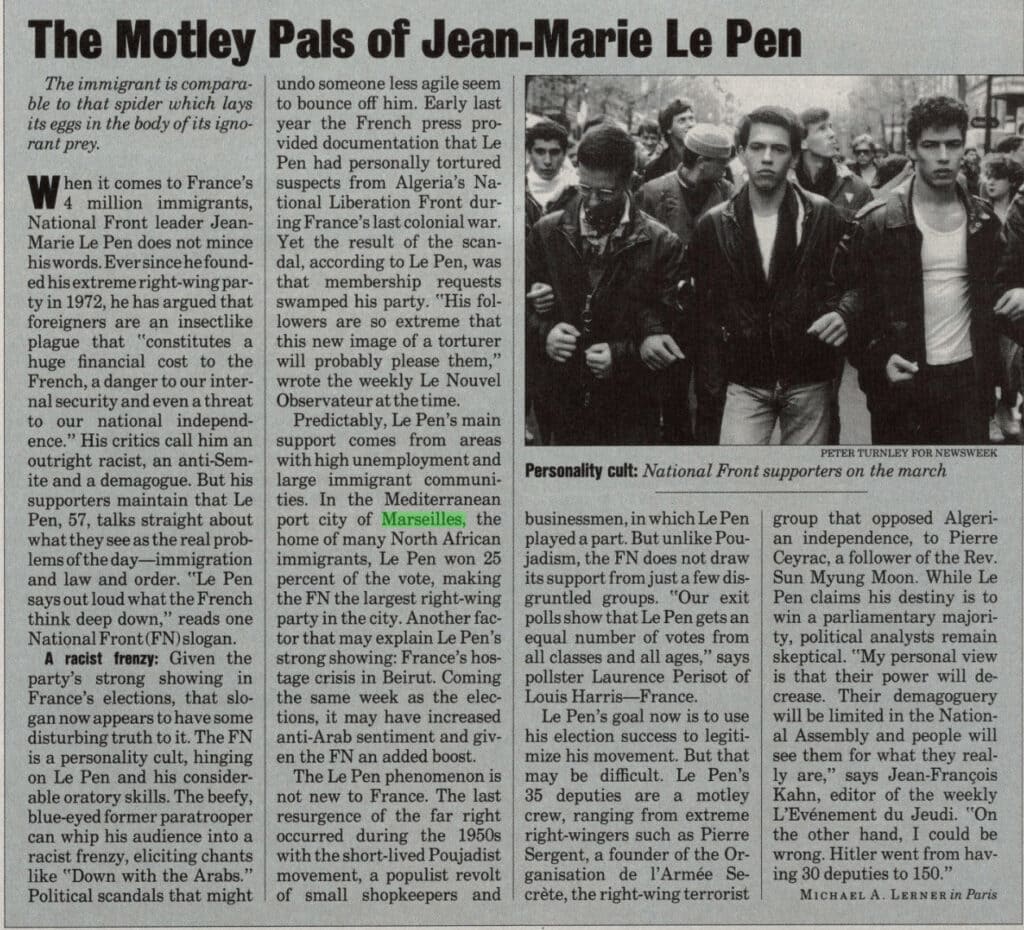
Another two sites I had particularly wanted to visit in Marseille this summer were the cathedral and the Basilique Notre-Dame de la Garde. A newspaper article documenting Hull FC’s trip to the city en route to Australia in 1924 paints a good picture of these two iconic sites. It likens worshippers in the cathedral to “a living representation of the Last Supper” and describes the view from the Basilique as “producing a wonderful sight – every building looked like a doll’s house”. This sounds wonderful!
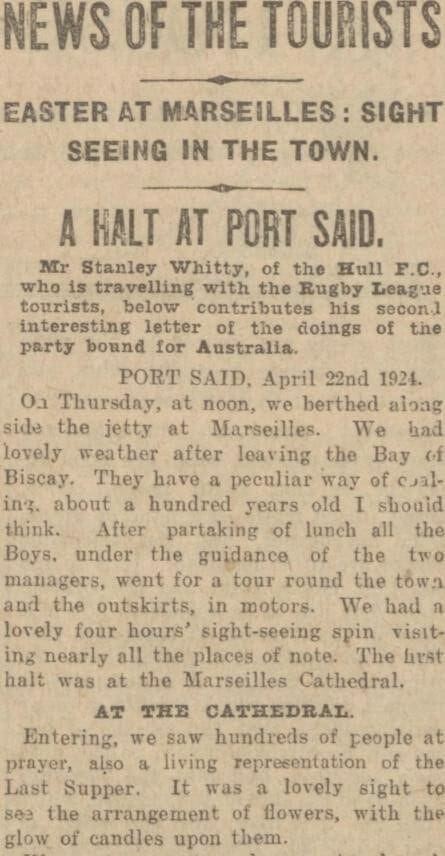
Local food and regional identity
Trying local food is a key part of any holiday – especially in France, the land of great cuisine! So, what is Marseille well known for? Lots of provincial ripe and refreshing fruit and vegetables sold at artisan markets, according to a newspaper report written by Peter Kirk (British MP) and published in The Illustrated London News in the late 1960s.Yum! Interestingly, the source also includes strong undertones about regional identity, which is perhaps unsurprising given the author was a politician. As a researcher of regionalism in France, some of the passages I found especially interesting include:
“This is the land of the French opposition. It is not a coincidence that the most famous revolutionary song in the world comes from Marseilles”
[NB: the French national anthem is actually said to have been written in Alsace, not Marseille].
“The valley of the Loire forms a natural boundary; north are the conformists; south are the nonconformists. So it has always been, so it will always be”
“There is bitterness here, a bitterness which is fanned by their newest arrivals – the pieds-noirs. They have settled in Provence to be as near as possible to their beloved Algerian sun”
This source could be said to identify some of the root causes of the issues surrounding post-colonial immigration in Marseille that we saw in the article above from Gale’s Women’s Studies Archive.
A more touristic aspect of Marseille’s local identity is its reputation as the ‘sexiest city’ of France. I found some fantastic romance novels that relate to Marseille as France’s ‘oppositional’ city, including stories about rebellious local men who flirted with women and stole their hearts away from powerful men in Parisian society – including from the King of France himself! I recommend the tale of Francis LeBaron in the rare book A Nameless Nobleman, by the American author Jane Austin, which I found in Women’s Studies Archive. This would make a great holiday read, to be enjoyed whilst sat lapping up the Mediterranean sun at the Old Port, with a big fresh fruit salad after a busy day of sightseeing. Indeed, whilst many bookshops and libraries up and down the country remain closed, you can find hundreds of books in Gale Primary Sources for your next summer read!
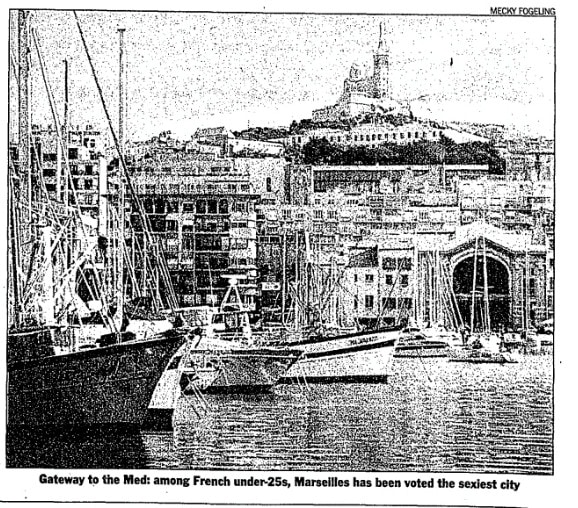
Keenan, Steve. “The new Marseilles connection.” Times, 9 June 2001, p. 1[S5]. The Times Digital Archive, https://link.gale.com/apps/doc/IF0501048378/GDCS?u=uniportsmouth&sid=GDCS&xid=c5ac1563
You can still explore your holiday destination – even if you make it there!
Virtually exploring Marseille was an easy and fun afternoon activity that I really encourage you to do too with your own cancelled holiday destination! Taking the time now to explore digital archives and practice important research skills will prepare you well for the new term – all whilst indulging your curiosity about a great holiday destination!
And for those lucky enough to still get away – you can still research the history of your destination whilst there, as the Gale Primary Sources platform is accessible anywhere with an internet connection!
If you do find any fascinating primary sources, you can share your virtual travel stories with us by tagging the University of Portsmouth twitter page @UoP_History!
Interested in reading more about how primary sources can be used to explore destinations or summer holiday practices of the past? Check out Holidaying in the 19th Century? Here’s what you need to know or Paradise Found: Exploring Historical Maps and Travel Writing.
Blog post cover image citation: Marseille Sea Port, by Jonny_Joka via Pixabay, https://pixabay.com/photos/marseille-port-sea-water-boats-4615791/

